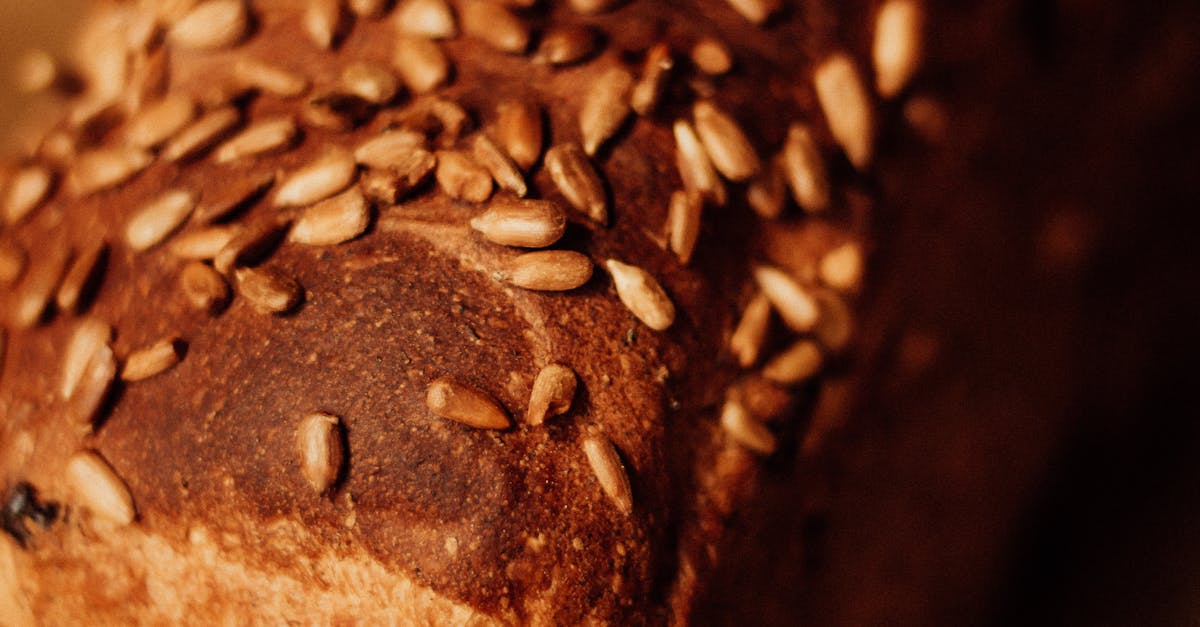Rethinking the "Processed" Label: 8 Foods You Don't Have to Give Up
In the modern culinary landscape, the term "processed" often carries a negative connotation, conjuring images of unhealthy, additive-laden foods. However, the reality is more nuanced. Not all processed foods are created equal, and some can be both nutritious and convenient. The key lies in understanding the spectrum of food processing and distinguishing between minimally and heavily processed items. This article aims to challenge the conventional wisdom that all processed foods are detrimental to health by exploring eight foods that, despite their processed nature, deserve a place in your diet. By reevaluating these foods, we can appreciate their nutritional benefits, convenience, and role in a balanced diet.
Yogurt: A Fermented Favorite

Yogurt is a prime example of a processed food that offers significant health benefits. Through the process of fermentation, milk is transformed into yogurt, which not only enhances its shelf life but also boosts its nutritional profile. Fermentation introduces beneficial probiotics, which are essential for gut health. These live bacteria can improve digestion, enhance immune function, and even influence mental health. Furthermore, yogurt is a versatile food that can be enjoyed plain, flavored, or as a base for smoothies and sauces. When choosing yogurt, opt for varieties with minimal added sugars and artificial ingredients to maximize health benefits.
Canned Tomatoes: A Pantry Powerhouse

Canned tomatoes are a staple in many kitchens, offering convenience without sacrificing nutrition. The canning process preserves tomatoes at their peak ripeness, locking in nutrients such as vitamins A and C, potassium, and lycopene—a powerful antioxidant linked to reduced risk of chronic diseases. Unlike fresh tomatoes, canned tomatoes are available year-round and can be used in a variety of dishes, from soups and stews to sauces and salsas. When selecting canned tomatoes, choose those with no added salt or preservatives to enjoy their full health benefits. This simple, processed food can be a valuable ally in maintaining a healthy diet.
Whole-Grain Bread: A Nutrient-Dense Staple

Whole-grain bread is another processed food that deserves recognition for its nutritional value. The process of milling whole grains into flour and baking it into bread enhances its digestibility and versatility. Whole-grain bread is rich in dietary fiber, which supports digestive health and helps regulate blood sugar levels. It also contains essential nutrients such as B vitamins, iron, and magnesium. When choosing whole-grain bread, look for labels that specify "100% whole grain" or "whole wheat" to ensure you're getting the full benefits. This processed staple can be a healthy addition to meals, providing energy and essential nutrients.
Nut Butters: A Creamy Source of Healthy Fats

Nut butters, such as peanut, almond, and cashew butter, are processed foods that offer a wealth of nutritional benefits. The process of grinding nuts into a smooth paste retains their healthy fats, protein, and fiber, making nut butters a satisfying and nutritious option. They are also rich in vitamins and minerals, including vitamin E, magnesium, and potassium. Nut butters can be enjoyed on toast, in smoothies, or as a dip for fruits and vegetables. To maximize health benefits, choose nut butters with minimal added sugars and oils. These creamy spreads are a delicious way to incorporate healthy fats into your diet.
Frozen Vegetables: Convenience Meets Nutrition

Frozen vegetables are a convenient and nutritious option for those seeking to maintain a healthy diet. The freezing process preserves vegetables at their peak freshness, retaining their vitamins, minerals, and antioxidants. Unlike fresh produce, frozen vegetables have a longer shelf life and are available year-round, making them an accessible option for busy individuals. They can be easily incorporated into a variety of dishes, from stir-fries to casseroles. When selecting frozen vegetables, opt for those without added sauces or seasonings to ensure you're getting the most natural product. This processed food offers a practical solution for maintaining a balanced diet.
Tofu: A Versatile Plant-Based Protein

Tofu is a processed soy product that serves as an excellent source of plant-based protein. The process of curdling soy milk and pressing it into blocks enhances its texture and versatility. Tofu is rich in protein, calcium, and iron, making it a valuable addition to vegetarian and vegan diets. It is also low in calories and contains all nine essential amino acids. Tofu can be used in a variety of dishes, from stir-fries to smoothies, and can be flavored to suit any taste. This processed food is a nutritious and adaptable option for those seeking to incorporate more plant-based proteins into their diet.
Dark Chocolate: A Sweet Indulgence with Benefits

Dark chocolate is a processed food that offers both indulgence and health benefits. The process of fermenting, roasting, and grinding cocoa beans into chocolate retains its flavonoids—compounds with antioxidant properties that support heart health and improve brain function. Dark chocolate is also a source of iron, magnesium, and zinc. When enjoyed in moderation, it can be a satisfying treat that contributes to a balanced diet. To maximize benefits, choose dark chocolate with a high cocoa content (70% or higher) and minimal added sugars. This processed delight proves that not all indulgences need to be sacrificed for health.
Canned Fish: A Protein-Rich Pantry Essential

Canned fish, such as tuna and salmon, is a processed food that provides a convenient source of high-quality protein and essential omega-3 fatty acids. The canning process preserves the fish's nutrients, making it a reliable option for maintaining heart health and supporting brain function. Canned fish is also a versatile ingredient that can be used in salads, sandwiches, and casseroles. When selecting canned fish, opt for varieties packed in water or olive oil and with low sodium content to ensure you're getting the healthiest option. This processed food is a practical and nutritious choice for those seeking to maintain a balanced diet.
Embracing a Balanced Perspective

Rethinking the "processed" label requires a shift in perspective, recognizing that not all processed foods are created equal. The eight foods explored in this article demonstrate that processing can enhance the nutritional profile, convenience, and versatility of certain foods. By understanding the spectrum of food processing and making informed choices, we can enjoy these foods as part of a balanced diet without compromising health. Embracing a balanced perspective allows us to appreciate the benefits of these processed foods, ensuring that our dietary choices are both nourishing and satisfying.
